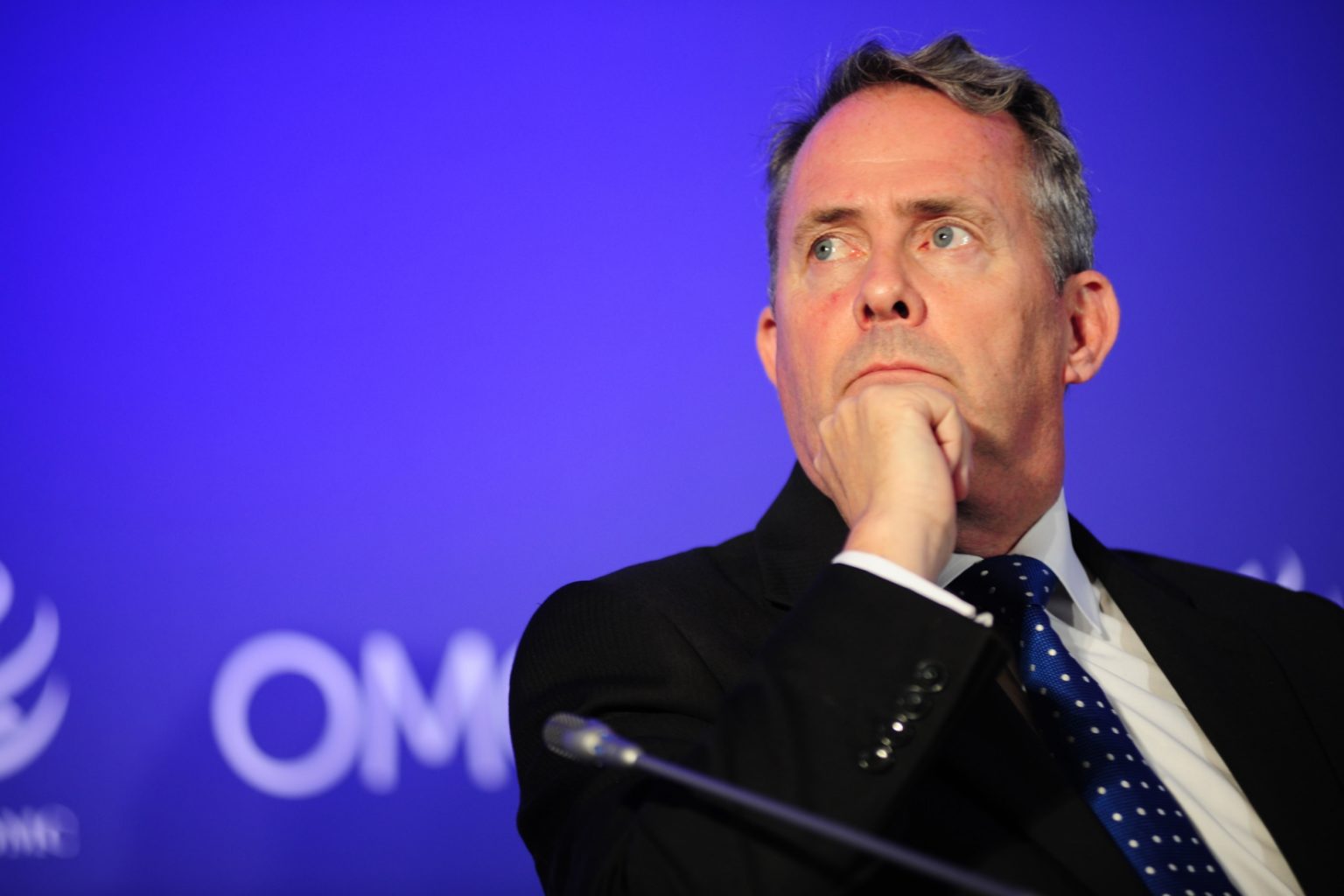During his first trip to the United States, less than two weeks after being appointed International Trade Secretary, Liam Fox took the opportunity to meet with the climate science denying neoconservative think tank, the Heritage Foundation.
The details of Fox’s post-Brexit three-day tour of America in July have only just been released to DeSmog UK under a freedom of information request. They show Fox also met with White House representatives, pro-business lobby group the US Chamber of Commerce, and some of its corporate members.
The documents reveal a close relationship between Fox and the Heritage Foundation, as well as the desire for a bilateral trade deal between the two countries. They also suggest concerns over the current “political discourse” in the US could hinder the deal, however.
An attendees list shows that Fox addressed 16 Heritage Foundation staff, including the think tank’s president Jim DeMint, and executive vice president, Bret Bernhardt, over lunch “to explain the formation of the Department and UK priorities on trade and our EU renegotiation”, according to the meeting notes.
Heritage Foundation Ties
The Heritage Foundation has campaigned for Brexit over the past few years and hosted climate denying Brexit campaigners Nigel Farage and Owen Paterson during the lead up to the June vote.
Fox’s relationship with the think tank dates back to his time as UK Defence Secretary.
During that time and up until 2011, Fox was the founder and UK chairman of Atlantic Bridge – a think tank that brought together right-wing libertarians from both sides of the pond. Among the group’s membership was Jim DeMint, a former Tea Partier and the Heritage Foundation’s current president. Fox’s former special advisor, Luke Coffey, now works at the think tank.
Upon hearing that Liam Fox was appointed as the UK’s International Trade Secretary on July 14, climate sceptic UKIP MEP Roger Helmer tweeted: “Liam Fox has good contacts in the USA. It’s quite possible that the UK will have a US free trade deal before the EU does.”
Negotiating a unique trade deal between the UK and US remains a top priority for Brexit Britain. But the path forward is not clear. Last month the EU conceded that the EU–US Transatlantic Trade and Investment Partnership (TTIP) will not be passed during Obama’s final months as president.
International mega-trade deals like TTIP are all about reducing “barriers to trade” – in other words, “harmonising” regulations between all parties which raises concerns that there will be a race to the bottom, with important regulations related to health and the environment watered down.
Among the criticisms of TTIP is that it is disconnected from the urgency of climate change and the Paris Agreement, and that it will allow for lax regulations, loopholes, and an easier flow of trade in fossil fuels, particularly shale gas from the US.
Recently in Britain, US climate denying think tanks the Competitive Enterprise Institute (CEI) and Heartland Institute spoke at the Conservative Party Conference and called for greater coordination between Britain and America. The CEI also have a voice on the international stage, with representatives currently attending the Marrakech climate conference.
Donald Trump has also named the director of CEI‘s Center for Energy and Environment, the climate science denying Myron Ebell, the as the man in charge of theUS Environmental Protection Agency’s transition under the president-elect.
Trade Talk
Among the other topics discussed in the Heritage Foundation meeting in July were “foreign and defence policy, the challenges posed by ITAR [International Traffic in Arms Regulations] to UK defence industry collaboration and appetite to push for improvements to operation of the UK–US defence cooperation treaty.”
Concerns about EU food standards were also raised during the lunch meeting. Specifically, the issue of chlorine-washed chicken currently banned in Europe due to health concerns was raised, with participants arguing that the long-standing restriction “is without scientific basis”.
In a follow up letter on 23 August, Fox wrote to DeMint: “[Redacted]. I look forward to working with you as the new UK government develops its trade policy priorities, including in high value areas that we discussed such as defence.” (The Department for International Trade operates the Defence and Security Organisation which helps British security and defence industries export their products).
In responding to a request for comment on the relationship between Fox and the Heritage Foundation, a spokesperson for the Department for International Trade said: “We will work with our trade and business partners to do everything we can to help UK businesses grow and take advantage of trade inward and outbound investment as well as the global appetite for British goods and services.”
“The Heritage Foundation is a think tank that focuses on the principles of free trade amongst others,” they explained. “Ministers meet with a variety of stakeholders and the International Trade Secretary and other UK government Ministers including the Prime Minister has spoken at length about the UK as a champion of global free trade.”
In other meetings held between Fox and trade lawyers, the US Chamber of Commerce, and the US Trade Representative, ambassador Mike Froman, concerns were raised over the future prospects of bilateral trade deals.
Notes from a roundtable with US trade experts show former US ambassador to the EU, Stuart Eizenstat, “noted Trump’s suggestion of withdrawal from the WTO as an especially bad omen. He lamented the current US political discourse on trade.
“A bilateral UK–US deal was politically attractive, but he questioned USTR [US Trade Representative] negotiating bandwidth.”
Photo: World Trade Organization via Flickr | CC 2.0
Subscribe to our newsletter
Stay up to date with DeSmog news and alerts







